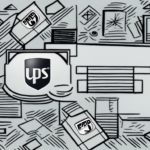Does UPS Ground Include Insurance?
Shipping items through UPS Ground is a reliable and cost-effective method to transport packages across the United States. However, a common question arises: does UPS Ground include insurance? This comprehensive guide explores the fundamentals of UPS Ground shipping, the importance of insurance, and the specifics of UPS Ground insurance coverage to help you make informed shipping decisions.
Understanding UPS Ground Shipping
What is UPS Ground Shipping?
UPS Ground is a service offered by United Parcel Service (UPS) that provides economy shipping options for packages that are not time-sensitive. Ideal for both commercial and residential deliveries, UPS Ground ensures packages reach their destination reliably within a specified timeframe.
Features of UPS Ground Shipping
- Delivery Confirmation: Track your package's journey from origin to destination.
- Real-Time Tracking: Monitor your shipment's status in real-time through the UPS website or mobile app.
- Signature Requirement: Optional service to ensure secure delivery by requiring a signature upon receipt.
UPS Ground shipments typically adhere to weight and size restrictions, with packages not exceeding 150 pounds in weight or 165 inches in combined length and girth. Delivery times range from 1-5 business days, depending on the distance between the sender and recipient.
The Importance of Insurance When Shipping
Why Insurance Matters
Shipping items without insurance exposes you to potential financial loss due to damage, loss, or theft during transit. Insurance provides peace of mind by ensuring that you are compensated if something goes wrong with your shipment.
Risks Without Insurance
- Damage: Packages can be mishandled, leading to broken or damaged items.
- Theft: Valuable items are at risk of being stolen during transit.
- Loss: Packages may occasionally get lost, especially during high-volume shipping periods.
UPS Ground Insurance Coverage Explained
Included Insurance in UPS Ground
By default, UPS Ground includes limited insurance coverage through the Declared Value feature. This coverage automatically applies up to $100 for most shipments, protecting the value of your package in the event of loss or damage.
Additional Insurance Options
For shipments valued over $100, UPS offers additional insurance options:
- Declared Value Coverage: Allows you to declare a higher value for your shipment, with coverage extending up to $50,000.
- Third-Party Insurance: Comprehensive coverage options available through external insurance providers for specialized needs.
To learn more about UPS Ground insurance options, visit the UPS Shipping Insurance page.
How to Add and Manage Insurance for UPS Ground Shipments
Adding Additional Coverage
Adding extra insurance to your UPS Ground shipment can be done easily during the shipping process. When creating a shipping label on the UPS website or at a UPS Store, you can declare the value of your package and purchase additional coverage as needed.
Costs of Additional Insurance
The cost of adding insurance depends on the declared value of your package. Typically, the insurance fee is a percentage of the declared value. For exact pricing, refer to the UPS Shipping Insurance page or contact UPS customer service.
Filing Claims and Understanding Coverage Limits
Filing a Claim with UPS
If your package is lost or damaged, you can file a claim through the UPS website. Ensure you have all necessary documentation, including the tracking number, proof of shipment value, and evidence of damage if applicable.
For detailed instructions on filing a claim, visit the UPS Claims page.
Coverage Limits and Exclusions
UPS Ground insurance covers the declared value of the package, including the cost of the items and shipping charges. However, certain items are not covered, such as:
- Cash and negotiable bonds or securities
- Jewelry, precious stones, or metals
- Live animals
- Antiques and artwork
- Alcoholic beverages
Additionally, there are maximum coverage limits, and certain high-value items may require specialized insurance.
Alternatives to UPS Ground Shipping Insurance
Third-Party Insurance Providers
For comprehensive coverage beyond what UPS offers, consider third-party insurance providers such as ShipShop or U-PIC. These providers offer tailored insurance solutions for high-value or fragile shipments.
Comparing Insurance Options
When choosing between UPS insurance and third-party providers, evaluate factors such as coverage limits, exclusions, cost, and claim processing efficiency to determine the best fit for your shipping needs.
Final Recommendations for UPS Ground and Shipping Insurance
While UPS Ground offers reliable shipping services, adding insurance is crucial for protecting valuable or fragile items. Assess the value of your shipment, understand the coverage options, and consider additional insurance through UPS or third-party providers to ensure comprehensive protection.
By taking these steps, you can minimize the risks associated with shipping and ensure your packages arrive safely and securely at their destination.




















